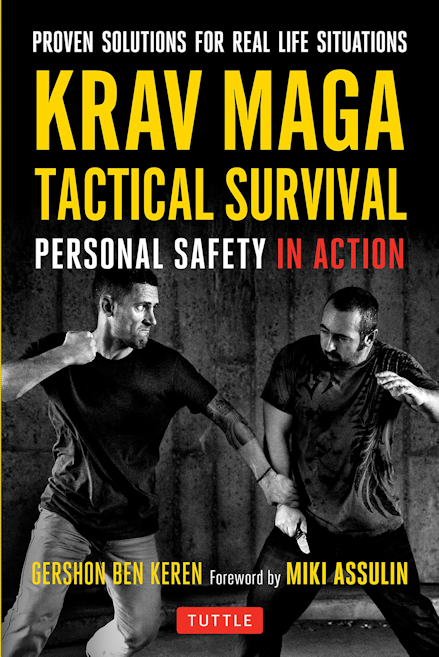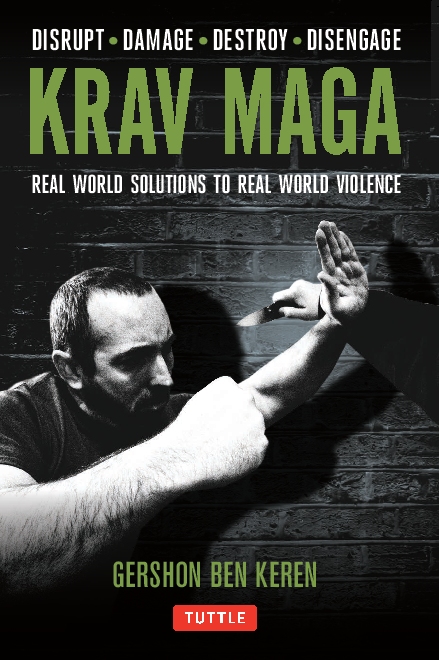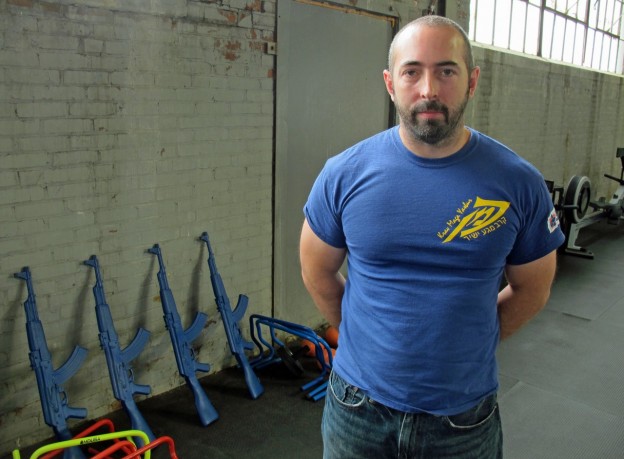Module 4 - Online & Social Media Security
Keeping Safe & Preserving Your Online Reputation
If you weren’t already aware, the university or college you are attending, probably checked you out on social media – Facebook, Twitter, Instagram, etc. – as part of your application process. What we and others put online about us, can tell people a lot about who we are and what we like to do. Sometimes posts and tweets lack context, and articles and stories don’t accurately portray who we really are - this is one of the dangers of social media. Comments we make on other people’s posts, that include in-jokes which the general online community is not privy to, can sometimes make us appear to be racist, homophobic and generally not nice people. Sometimes people can pick up on the things we say, and turn them into hate campaigns against us that put us at risk for our safety, or hamper our employment prospects, etc. For these reasons, we need to think seriously about the things we say online, how we say them, and also be aware that the way we act and behave may be easily captured on a smart phone and uploaded to social media sites; this may be for “harmless” fun, or as part of a cyberbullying campaign. This component of the course looks at how we should use social media, and some of the do’s and don’ts concerning it.
Perhaps the most fundamental principle we should understand about the internet and social media is the permanency of anything that is put up or published. An uploaded photograph, a comment on a story, or even something like an email that you share with friends, will in all probability last forever – even if you tell people to delete whatever is after reading it, and not to share it, etc. Things never completely go away. They may cease to be the most newsworthy items, after a time, but they will always exist, with the possibility that they could resurface, at a later date. A photo of yourself drunk and half-dressed at a party, may seem like a funny post at the time - however once posted, it will be out there forever. There may be no consequences when you do this, or there might be unforeseen ones, such as a future employer doing a bit of background research on you, etc. Before you post, comment or like something you may just want to take a moment to think about the possible implications of what you are doing, and consider if what you were thinking of doing would be better kept as something personal and private. This doesn’t mean you shouldn’t use social media, but rather you might want to think about how someone who doesn’t know you might interpret what you post, and whether this would cause them to have adverse feelings towards you.
If you saw a comment, a post or a tweet that said, “Because I’m white”, you wouldn’t know if the person making the statement was being sarcastic, ironic, siding with people of color, or being racist. Even if the context was clear, and the person making it was being sarcastic, if someone wanted to, they could take the statement, and claim that it was racist. There are enough people on the internet, who would be happy to jump on this, and join the bandwagon saying that the comment was racist. In the noise of such judgment, the real reason behind the post would be forgotten.
This happened to an experienced Public Relations executive called Justine Sacco. In a now famous tweet she said, “Going to Africa. Hope I don’t get Aids. Just Kidding I’m White!” At first glance, and as a stand-alone statement, it is offensive and racist – however when you hear the story behind the tweet you may think otherwise. At the time Justine Sacco had just 170 Twitter followers, so she was under the impression that only a few people would see the tweet, but one of her followers re-tweeted it, and it went viral. She made the tweet just before she boarded a flight from Heathrow to Cape Town; a 10 hour journey. By the time she landed she was the number one worldwide trend on Twitter. People’s comments on her tweet, included calls for her to lose her job (which she did), along with threats. Justine Sacco didn’t believe in a million years that her tweet would be taken literally, that people would think she was mocking black Africans, with her white, privileged status; for her, the comment was meant to poke fun at the way in which living in America can put you in a bubble where you are unaware of what is happening in the third world. The problem was, nobody was interested in that story, and Justine Sacco’s voice and explanation was lost due to the noise on Twitter. When you post something on social media and people pick up on it, you don’t have the opportunity to later say, “I didn’t mean it like that.” A thoughtless comment that was meant to be ironic cost Justine Sacco her job, and ruined her life.
The internet gives people easy opportunities to feel self-righteous, and be judgmental in a relatively anonymous way. People who might not be motivated to join a rally or protest and campaign over a social issue, can add their voice to the collective indignation of the masses, using social media, with very little effort. Just as social media can make it all too easy to post a stupid comment, it also makes it very easy to criticize and condemn that comment – even if the condemnation isn’t really justified.
Another problem people have with social media is that they become competitive over it - they want the photograph they put up on Facebook to get as many “likes” as possible or to have a tweet re-tweeted as many times as possible. The problem is that to stand out in today’s social media, this normally means saying or posting something extreme. Students going to and enrolled at colleges have lost sports scholarships, because coaches felt that their comments and posts didn’t reflect well on the team, or were felt to represent the spirit of the college/university. "Never let a 140 character tweet cost you a $140,000 scholarship," Brandon Chambers, an assistant men's basketball coach at Marymount (Virginia) University, tweeted in 2014. It may seem that posting an outrageous photograph or saying something extreme will only last for that moment, however it can have fairly immediate and drastic consequences.
Some of the things to avoid posting on social media are party pictures. Whilst you are not old enough to drink, you should certainly not post pictures of yourself drinking. Although everybody knows and acknowledges that under-age drinking does go on at university, it does you no favors to present a record of yourself breaking the law; especially with future employers. You should also avoid being overly negative and critical of your college/university; this may affect scholarships and grants you have, with the institution feeling it is not in their best interest to invest in someone who is depicting them in a bad light. It also gives an employer an insight into your attitude towards things, and nobody wants to work with negative people. Also, when you post, pay attention to your grammar. This may seem a minor point but a study by Grammarly showed that employees with well edited social media profiles were more successful in their careers, enjoying better positions and promotions, than those with poorly edited profiles. Future employers are starting to pay a lot of attention to how and what you say about yourself, online.
You should also avoid giving too much detail about your personal life. Many predators will pretend to be interested in the same things as you, and to have had similar experiences to yours, in order for you to feel an affinity for them. If you think somebody is just like you, and that you have things in common, they are much more likely to trust them. Also if you announce things like when you are going away on holiday, people will know when you will not be at your house or in your room, making you vulnerable to being burgled, etc. Whenever you see somebody checking in at an airport on Facebook, you know wherever they live will be vacant for a period of time. Post your holiday photographs when you get back, rather than announcing that you’ll be away before you leave.
Nothing is Completely Private on the Internet
Not everybody who follows you or is friends with you on social media is concerned about you. Some people will follow or friend you to see what you are up to, without being genuinely interested in your wellbeing e.g. it was one of Justine Sacco’s followers who re-tweeted her comment.
In 2010, a female student (Karen Owen) at Duke University, compiled a “joke” Power Point presentation that she emailed to a few close friends. It was entitled, “An education beyond the classroom: excelling in the realm of horizontal academics.” In it she grades 13 men, many of them from the Duke College Lacrosse team, on the criteria, including penis size, their sexual creativity and athletic ability. The report/thesis was intended to be entertaining and fun, and the intended audience was a close circle of female friends. The author never intended it to be public, but of course it soon did. Whilst the author told the recipients of her piece not to pass it on, somebody did. They may have done so telling their circle not to forward it on, etc., however the piece soon went viral. The content of the report was a mix of well written and genuinely funny statements along with moments of acute self-awareness, however both the author, and those she wrote about were cast under a spotlight, where nobody wanted to be. The report is still out there and available on the internet, despite the best efforts of the author and those on the list to remove it. However much Karen Owen regrets writing and sending it to her friends, that report will live on forever.
What you may think is private and restricted can never be guaranteed so. You may think the innocent enough topless selfie, you took for your boyfriend, and sent to him, will only live on his phone, however in a mix of show and bravado he may well show it to a friend, who then pressures him into sending him a copy. That photo is now outside of the circle it was intended for, and you have no control over that image. It may be that your boyfriend doesn’t pass it on whilst you are together, however if the relationship ends and he feels the need to hurt you, he has a perfect piece of ammunition with which to do so. If he uploads it to a social media site that photo will exist forever, even if you manage to get him to take it down, as it is inevitable that someone will have downloaded it, forwarded it or shared it during the time it was up.
Geocodes & Personal Safety
Many people upload photographs directly from their phones, unaware of the amount of information they are putting out there in the public domain. Photographs taken on phones contain details about the time when the photo was taken, along with the place/location it was taken. Locations are stored as Geocodes, and if you upload these photos to Facebook and other similar information, this Geocode information goes with them. Anyone who has software that can perform reverse geocoding (and this is freely available), will be able to find out the place where you took the photograph. One of the intended uses of this geocoding was so that images which were by default stored as files with names like DSC0001.jpg could be automatically renamed with the location where they were taken e.g. STATUTE_OF_LIBERTY1.JPG etc.
Unfortunately, this information could also be used for nefarious purposes. Imagine that you are getting ready to go out, and you take a selfie of yourself all dressed up, and decide to update the profile picture on one of your social media accounts. The location where the photograph was taken – your house – is now in the public domain. Let’s say that you’ve got an admirer in one of your classes who keeps trying to date you, however you have no interest. They can now access where you live. If you take some photos at a bar or a restaurant you frequent, and upload those photos, they now know where you go out to socialize. With a bit of commitment, patience and persistence they can build up a fairly accurate profile of your life, which will enable them to be in the same place, at the same time as you whenever they want. Now imagine it’s not just a persistent and annoying admirer, but an ex-boyfriend who is stalking you.
It is possible to take photographs on your phone without storing geocode information, however you will need to actively turn this off in most smartphones. In most phones this will involve resetting your location and privacy settings, and then opening your camera application, and selecting/de-selecting the appropriate options.
Cyberbullying
In any bullying incident there are three parties: the bully, the bullied, and the bystanders. Social media has made it very easy for individuals to publicly humiliate others, start rumors and run campaigns of social exclusion.
In 2010 Dharun Ravi, the roommate of Tyler Clementi – a Rutgers student – set up a hidden camera in their room to film Tyler and another man, after Tyler asked if he could have use of the room for a few hours. Tyler had only just come out as gay during the summer of his high school graduation, and had only just started sharing this information. His roommate captured Tyler engaging in intimate acts with another man, and put the recording online for others to view. After learning through his roommate’s Twitter feed that he was an object of ridicule, and that his roommate filmed him again (as an open feed with other students watching), Tyler committed suicide by jumping off the George Washington Bridge – this was three days after the original posting of the video, online.
That Ravi meant the whole event to be some form of prank, not realizing the seriousness of what he was doing is one explanation – whether or not he deliberately wanted to embarrass and shame Clementi, is irrelevant. His actions caused an 18 year old to take his own life. What is often left out of this story, is the other individuals who were complicit in this, the ones who commented on the first video and congratulated Ravi on taking it and posting up. If nobody had commented and/or people had condemned Ravi’s actions, and supported Clementi, he may still be alive.
When you like something on Facebook, or re-tweet something, or leave a comment that agrees or supports the author, you are giving them power, and a mandate to continue what they are doing. Someone else’s embarrassment, may seem funny to you at the time, however it may be socially crippling to them. If the person who is the focus of the post has not responded in any way, it may be better to do the same. None of the individuals who tweeted in support of Ravi’s actions, who watched the videos, etc., would have imagined what Clementi would do. However it is clear that Clementi didn’t consider himself “in” on the joke.
Social media can be a powerful tool for change, but it also allows a large and expansive platform for bullies to engage in their acts. We have a choice, we can be the bystanders who lend our support to the bullies, the ones who don’t engage, or the ones who actively intervene and show that we don’t support the things they do.
Conclusion
Your online presence says a lot about you, not only to your friends but to your college/university, as well as future employers. In a study in 2009, 45% of employers said that they used Social Media to influence their selection and hiring of employees. That number is only going in one direction. By the time you graduate, it will be rare to find an employer who doesn’t.



